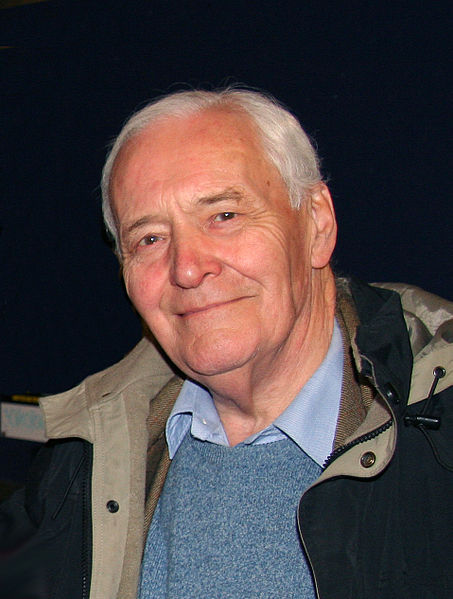Tony Benn has died this month aged 88. He was a central campaigner in British leftwing politics. He hated New Labour for abandoning all socialist principles.
He was the second son in a family with strong religious ethos. His father was a Liberal MP (as had been his own father) who moved to the Labour camp. He was later given a peerage as Viscount Stansgate. Tony fought a long battle to be able to renounce this title in order to sit in the House of Commons.
He attended Westminster school from where he went to New College, Oxford, to study philosophy, politics and economics.
He served in the Royal Air Force during WW2. He entered parliament in 1950. In 1955 as he presented the bill that would allow him to renounce his peerage he developed a reputation as an advocate of constitutional reform.
He was the first MP to table a motion on apartheid. In 1960, Benn’s father died, and he inherited the peerage, which disqualified him to be in the House of Commons. The battle to be able to renounce it took three years but he finally gained the right to renounce the title, winning a seat as an MP in a by-election.
“By the end of the 1970s, Benn had migrated to the left wing of the Labour Party. He attributed this political shift to his experience as a Cabinet Minister in the 1964–1970 Labour Government. Benn ascribed his move to the left to four lessons: 1) how “the Civil Service can frustrate the policies and decisions of popularly elected governments”; 2) the centralised nature of the Labour Party allowing to the Leader to run “the Party almost as if it were his personal kingdom”; 3) “the power of industrialists and bankers to get their way by use of the crudest form of economic pressure, even blackmail, against a Labour Government”; and 4) the power of the media, which “like the power of the medieval Church, ensures that events of the day are always presented from the point of the view of those who enjoy economic privilege. As regards the power of industrialists and bankers, Benn remarked: “Compared to this, the pressure brought to bear in industrial disputes by the unions is minuscule. This power was revealed even more clearly in 1976 when the IMF secured cuts in our public expenditure. […] These [four] lessons led me to the conclusion that the UK is only superficially governed by MPs and the voters who elect them. Parliamentary democracy is, in truth, little more than a means of securing a periodical change in the management team, which is then allowed to preside over a system that remains in essence intact. If the British people were ever to ask themselves what power they truly enjoyed under our political system they would be amazed to discover how little it is, and some new Chartist agitation might be born and might quickly gather momentum.” (Wikipedia)
After Labour lost the 1979 general election to Margaret Thatcher, Tony Benn participated in a Labour Party leadership contest in 1981, losing by less than 0.5%.
He became a backbencher, which gave him the freedom to be highly critical of the Tories but also of Tony Blair’s Labour government, not least about the Iraq war. In 2001 he retired after 51 years in the Commons “to devote more time to politics”.
He supported a withdrawal from Nato, unilateral nuclear disarmament and the World March for Peace and Nonviolence launched by World Without Wars and Violence. He remained an active anti-war campaigner until his death.
Some Tony Benn quotes:
“Anyone from abroad will tell you that it is the class system that really lies at the root of our problems, economic and industrial. The House of Lords symbolises that.”
“It is wholly wrong to blame Marx for what was done in his name, as it is to blame Jesus for what was done in his”.
“If one meets a powerful person–Adolf Hitler, Joe Stalin or Bill Gates–ask them five questions: “What power have you got? Where did you get it from? In whose interests do you exercise it? To whom are you accountable? And how can we get rid of you?” If you cannot get rid of the people who govern you, you do not live in a democratic system.”
“If we can find the money to kill people, we can find the money to help people.”
“I think there are two ways in which people are controlled. First of all frighten people and secondly, demoralize them.”
“Choice depends on the freedom to choose and if you are shackled with debt you don’t have the freedom to choose.”
“The way change occurs to begin with, if you come up with a good idea, like heathcare, you’re ignored. If you go on you must be mad, absolutely stark-staring bonkers. If you go on after that you’re dangerous. Then, if the pressure keeps up there’s a pause. And then you can’t find anyone at the top who doesn’t claim to have thought of it in the first place. That’s how progress is made.”










